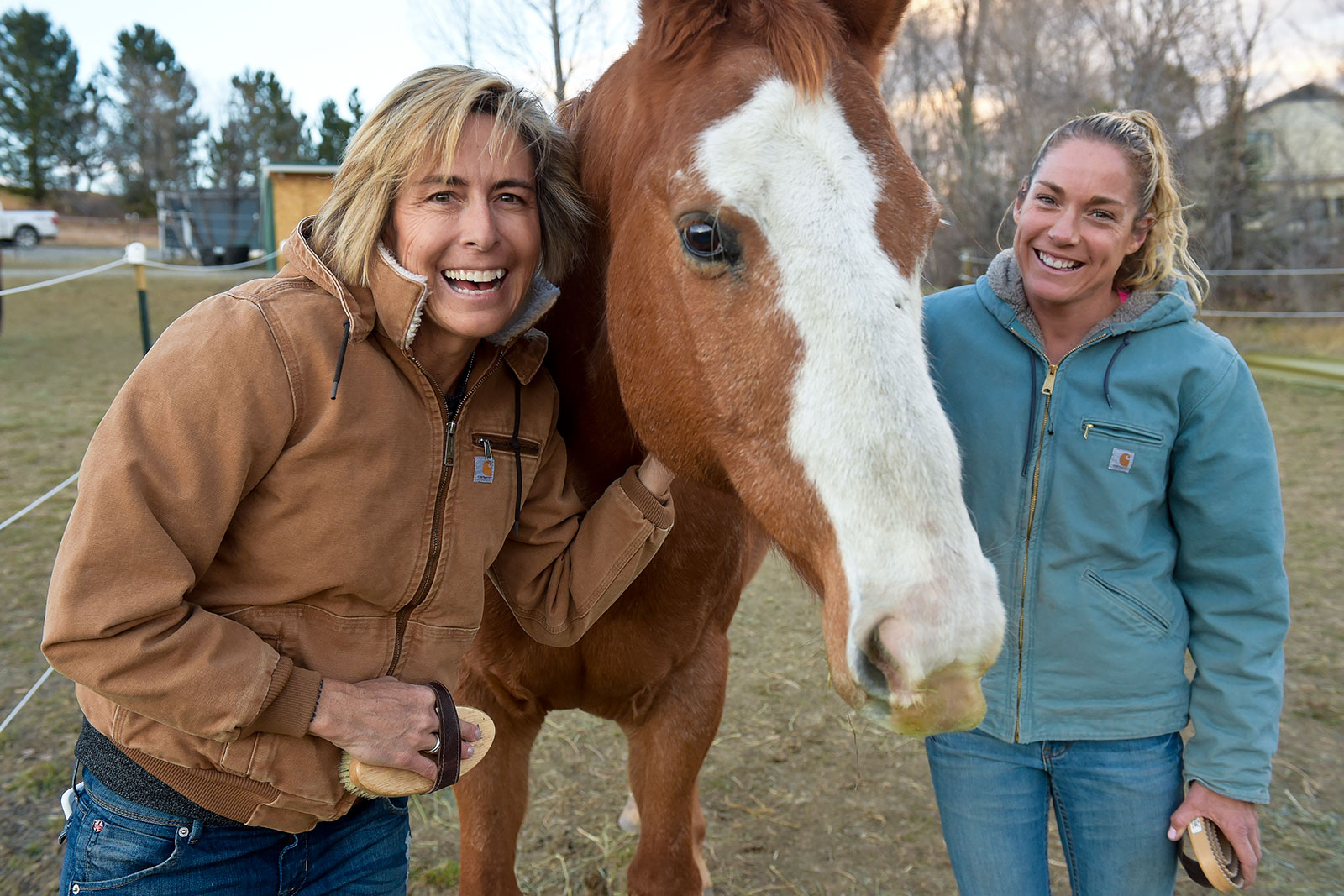Siri Lindley has defied the odds more than once in her life.
Most recently, the former championed triathlete, now a coach and speaker, fought through an unexpected acute myeloid leukemia diagnosis. But she credits overcoming the unthinkable with her induction into the world of professional triathlons years ago.
As a shy and reserved kid often confronting self-doubt, Lindley found sports to be a refuge from anxiety. After playing field hockey and lacrosse for several years, she discovered triathlons at 24 years old. Going from a team environment to a sport where she could only rely on herself felt like the natural transition to fully face any residual insecurities.
“Triathlons just seemed like the perfect opportunity to really find me and prove to myself what I was capable of on my own,” says Lindley. “When you play on a team, then you lose as a team, and it’s incredible. But at this point, to discover my own strengths and my own courage and believe in myself and ultimately a love for myself is what I was really after.”
Lindley hadn’t competed in a triathlon before—she couldn’t even swim all that well. She came in dead last in her first race and while she says she completely humiliated herself in the process, she also had never felt more alive. Even when failing, the sport invigorated Lindley to such a degree that she would stop at nothing to become one of the best professional triathletes in the world.
“I had such a deep ‘why’ behind it,” she says of the purpose driving her to become proficient in the sport. “That ‘why’ was connected to truly finding love and respect and worthiness for myself, so I literally immersed myself.”
The immersion paid off. Lindley’s persistence as a triathlete, from training while working 60-hour weeks to moving to Australia, led her to rack up numerous world championship titles, including back-to-back wins at the ITU Triathlon World Cup in 2001 and 2002. She was officially ranked as the top female ITU triathlete in the world.
“It was such an incredible journey,” Lindley says. “And I realize now that it was that journey that totally prepared me for my most recent journey with leukemia.”
After her successful stint in triathlons, Lindley chose to retire from the sport and began coaching in 2003. However, her intense training for her own races seemed to catch up with her in the form of a bad hip. In November of 2019, Lindley had a window of availability in her busy schedule when she would be able to undergo a hip replacement. She went in for standard preoperative tests but instead came out with something very startling—a cancer diagnosis.
I said, ‘I am physically alive. And I am going to thrive.’
Acute myeloid leukemia (AML) affects the bones and blood and can progress rapidly without treatment. Lindley was terrified and devastated when she received the call from her oncologist. But, as the doctor was explaining the diagnosis, Lindley looked over to her wife, former triathlete Rebekah Keat, who was sitting next to her with tears in her eyes. A wave of love washed over Lindley and that’s when she knew she was going to give cancer her best fight.
“It was literally in that moment, regardless of a horrible thing that my doctor was saying that I had to be dealing with, that I said, ‘I am physically alive. And I am going to thrive,’” Lindley recalls. She says she made the decision then that everything she did going forward would focus solely on healing, surviving and thriving.
Part of that survival was fueled by Lindley’s passion for rescuing horses. She and her wife own a 7-acre ranch, Believe Ranch and Rescue, that’s nestled in the foothills of the Colorado Rockies, where they’ve committed to rescuing horses from auction, feedlots, slaughter and neglect. More than 100 horses have been rescued, rehabilitated and rehomed in the past three years. Lindley and Keat have also spearheaded Horses in Our Hands, a national campaign to end horse slaughter in the U.S. Having what felt like a greater purpose helped Lindley get through her treatment.
“It was keeping me going. Because when you’re going through something like cancer, and especially when you’re in the hospital and you’re doing nothing, it made me feel like I still was accomplishing something,” Lindley
says. “It gave me purpose, and it made me feel like I was still able to have a huge impact.”
Lindley has experienced the healing power of horses firsthand and she wants to have the chance to pass that special connection onto others. Believe Ranch and Rescue has started offering equine therapy programs for cancer warriors, where a mental health professional supervises the grooming, feeding or leading of a horse to promote physical and mental wellbeing. Lindley believes that when you pair animals and humans together, something powerful happens.
“Their presence, their energy is incredibly calming,” Lindley says of the horses on the ranch. “They helped me so much to overcome the anxiety and the fear that comes along with diagnosis, treatment and survivorship. I’m so deeply grateful for that.”
Lindley is now cancer free, and she credits that status to both her horses and her mindset. As a motivational speaker, Lindley hopes her message of reframing situations can help others persevere when the odds seemed stacked against them—whether they’re training for a race or fighting cancer.
“In triathlon, I truly had to back myself and believe in myself because all the evidence around me was saying, ‘You’re not good at this, and you should do something else,’” says Lindley. “Getting back up, dusting myself off and not giving up ultimately resulted in me achieving my dream. That has given me the belief that anything and everything is possible. I had that proof. And we all have [that proof] in our lives, where we have overcome something that we never thought we could. It’s so important to focus on those memories rather than on the unknown.”
To keep up with Siri Lindley, visit sirilindley.com or follow her on Instagram @sirilindley. To find out how you can help horses alongside Lindley and Keat, check out believeranchandrescue.org and horsesinourhands.org.







